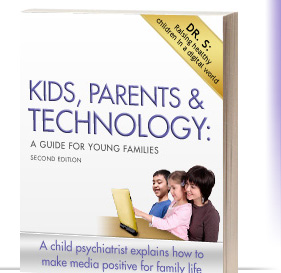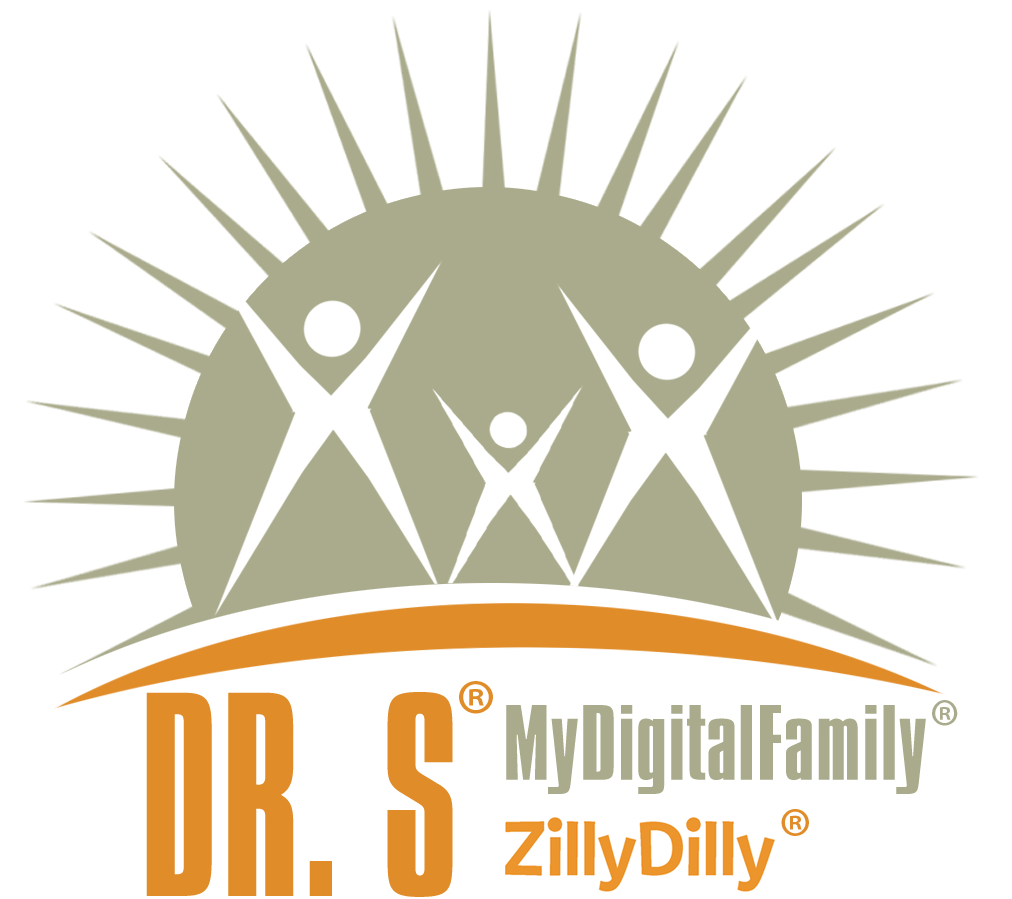Link to Original Article
10.23.10
Video Clip: Click to Watch
It looks like Apple is targeting youth in its mobile applications, as well as laptops. For example, David Chartier’s recent review “iTunes 10 Goes Social,” describes Ping, an elementary Facebook-type connection among kids purchasing music on iTunes. The same issue describes Apple’s new iOS 4.1’s Game Center as offering software developers better means to ” implement multiplayer features into their games while letting players more easily challenge their friends to matches.” Additionally, iOS 4.2 will be especially good for mobile TV apps.
Eitan Schwarz, M.D., a veteran Chicago-area child psychiatrist, notes, “Such expansions of technology into children’s lives can be either good or bad. What makes the difference is how parents organize home media consumption — and by media I mean from big screen TV’s, through computers and smartphones, to the tiniest iPod — to benefit kids and the life of the family with the right balance of nutrients.”
Dr. Schwarz states, “The new Apple operating systems can encourage developers to make applications that are more pro-social and promote healthy family life. But parents must be selective and involved from an early age.”
Most of today’s older kids have received little systematic guidance from their parents. 1/5 of kids 8-18 spend up to 19 hrs/d (including texting and multitasking) total media time. Media use is associated with poorer grades and family life and less reading and imaginative play. When parents set limits for 1/3 of youngsters, media consumption drops by only 1/3, showing that restriction is just not enough.
Dr. Schwarz, also known to his patients as Dr. S, has researched the use of media in play therapy. He adds, “Technology is great — we need to use it in positive, proactive family-centered applications. But in the 10+ years of media explosion into the lives of younger and younger children, there has been little systematic effort to guide parents about their best use. In covering new media or device launchings, only few reporters ever help parents consider potential benefits or hazards to family life.”
Dr. S, author of “Kids, Parents & Technology: A Guide for Young Families,” adds, “My advice: Parents have home court advantage. Their commitment must be big, and they need good expert help to keep kids from consuming junk media, just as they do junk food when not guided. Parents should plan kids’ media use just like they plan meals for healthy nutrition. Start early and work at it as part of daily parenting. A Media Plan must be based on sound child development and family health principles and must help families succeed as their kids brains are wired actively during early childhood. It must prevent improper chaotic use in the teen years before it starts.”
Refs:
David Chartier (Macworld, November 2010, p72, also see Macworld.com/6572)
Macworld, November 2010, p23, also see macworld.com/6574



Psychiatrist to Parents: Make New Apple Operating Systems Good for Your Family
Link to Original Article
10.23.10
Video Clip: Click to Watch
It looks like Apple is targeting youth in its mobile applications, as well as laptops. For example, David Chartier’s recent review “iTunes 10 Goes Social,” describes Ping, an elementary Facebook-type connection among kids purchasing music on iTunes. The same issue describes Apple’s new iOS 4.1’s Game Center as offering software developers better means to ” implement multiplayer features into their games while letting players more easily challenge their friends to matches.” Additionally, iOS 4.2 will be especially good for mobile TV apps.
Eitan Schwarz, M.D., a veteran Chicago-area child psychiatrist, notes, “Such expansions of technology into children’s lives can be either good or bad. What makes the difference is how parents organize home media consumption — and by media I mean from big screen TV’s, through computers and smartphones, to the tiniest iPod — to benefit kids and the life of the family with the right balance of nutrients.”
Dr. Schwarz states, “The new Apple operating systems can encourage developers to make applications that are more pro-social and promote healthy family life. But parents must be selective and involved from an early age.”
Most of today’s older kids have received little systematic guidance from their parents. 1/5 of kids 8-18 spend up to 19 hrs/d (including texting and multitasking) total media time. Media use is associated with poorer grades and family life and less reading and imaginative play. When parents set limits for 1/3 of youngsters, media consumption drops by only 1/3, showing that restriction is just not enough.
Dr. Schwarz, also known to his patients as Dr. S, has researched the use of media in play therapy. He adds, “Technology is great — we need to use it in positive, proactive family-centered applications. But in the 10+ years of media explosion into the lives of younger and younger children, there has been little systematic effort to guide parents about their best use. In covering new media or device launchings, only few reporters ever help parents consider potential benefits or hazards to family life.”
Dr. S, author of “Kids, Parents & Technology: A Guide for Young Families,” adds, “My advice: Parents have home court advantage. Their commitment must be big, and they need good expert help to keep kids from consuming junk media, just as they do junk food when not guided. Parents should plan kids’ media use just like they plan meals for healthy nutrition. Start early and work at it as part of daily parenting. A Media Plan must be based on sound child development and family health principles and must help families succeed as their kids brains are wired actively during early childhood. It must prevent improper chaotic use in the teen years before it starts.”
Refs:
David Chartier (Macworld, November 2010, p72, also see Macworld.com/6572)
Macworld, November 2010, p23, also see macworld.com/6574